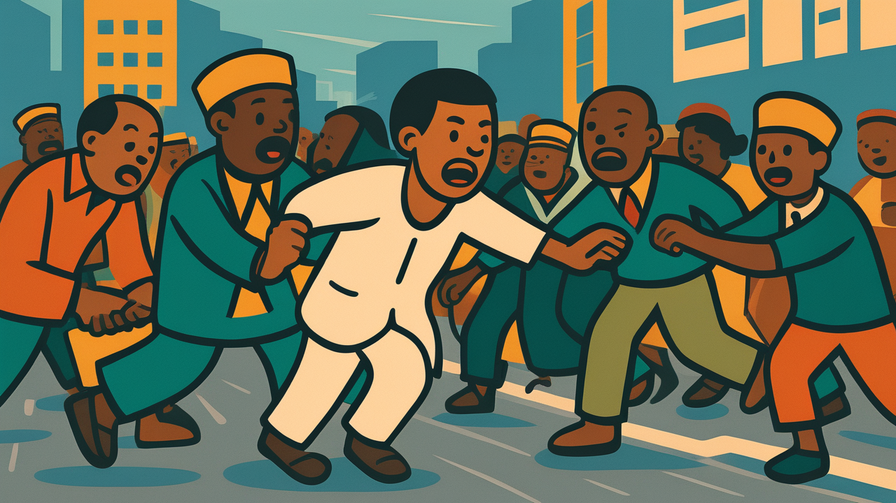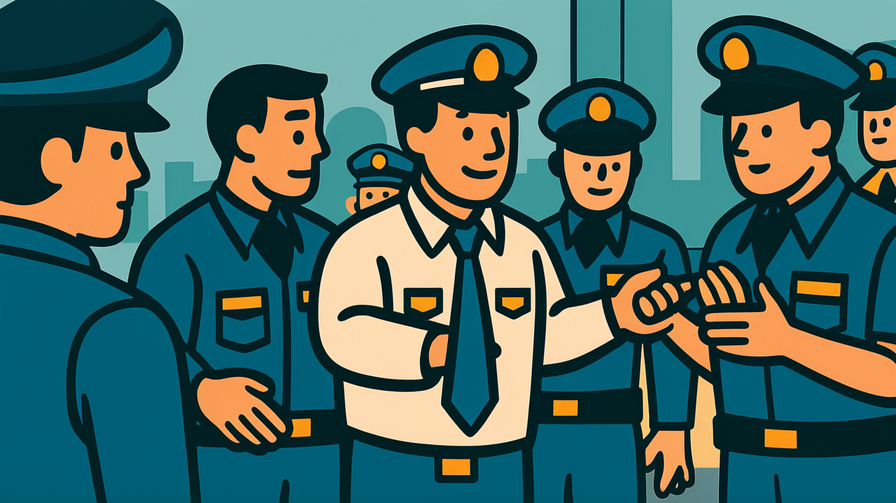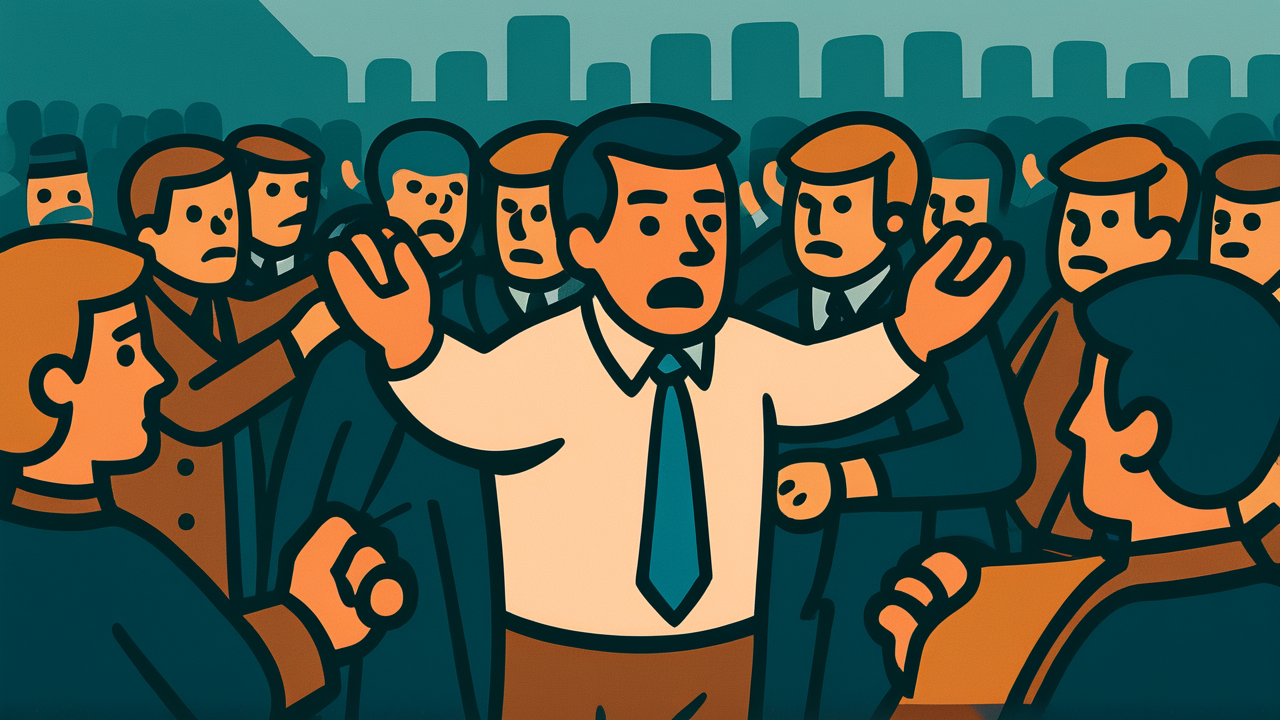[Disclaimer] This article is reconstructed based on information from external sources. Please verify the original source before referring to this content.
News Summary
The following content was published online. A translated summary is presented below. See the source for details.
Nigeria continues to grapple with the disturbing phenomenon of “jungle justice” – mob violence where crowds attack and sometimes kill suspected criminals without trial. Recent incidents in Lagos, Port Harcourt, and other cities have reignited debates about this practice. Victims are often accused of theft, witchcraft, or blasphemy, with mobs acting as judge, jury, and executioner. Human rights organizations report hundreds of such incidents annually, many going unreported. The practice stems from deep frustration with Nigeria’s justice system, where police are often seen as corrupt or ineffective, and court cases can drag on for years. Government officials and civil society groups are working to address the root causes through police reform, public education campaigns, and improving access to justice. However, changing deeply ingrained behaviors and rebuilding trust in formal institutions remains a significant challenge in Africa’s most populous nation.
Source: Global Voices
Our Commentary
Background and Context

“Jungle justice” is the term Nigerians use for mob violence against suspected criminals. The name itself suggests a lawless, primitive form of punishment that belongs in the jungle, not in civilized society. This practice has deep roots in Nigeria’s complex history of colonialism, military rule, and weak institutions.
During colonial times and military dictatorships, many Nigerians learned not to trust official authorities who often served their own interests rather than protecting citizens. When democracy returned in 1999, institutions remained weak and corrupt. Today, many Nigerians believe that reporting crimes to police is useless because officers might demand bribes, release criminals who pay them, or simply do nothing. This loss of faith in official justice leads some people to take matters into their own hands.
Expert Analysis
Sociologists identify several factors that enable mob violence to persist. First is the breakdown of trust between citizens and law enforcement. When people believe police won’t help or might even harm them, they seek alternative forms of “justice.” Second is the power of collective emotion – when a crowd forms, individual judgment often disappears, replaced by group anger that can quickly turn violent.
Economic factors also play a role. In communities where poverty is widespread and opportunities are scarce, property crimes can trigger extreme responses. A stolen phone or motorcycle might represent months of savings, making the loss feel catastrophic. Without insurance or hope of police recovery, people’s frustration can explode into violence.
Additional Data and Fact Reinforcement
The scale of mob violence in Nigeria is shocking:
• Human rights groups document 300-500 mob killings annually
• Only less than 5% of mob violence cases result in prosecutions
• 67% of Nigerians distrust the police, according to surveys
• Average time to resolve a criminal case in court: 3-7 years
• Police to population ratio: 1 officer per 650 citizens (UN recommends 1:450)
Common triggers for mob violence include:
• Theft accusations (phones, motorcycles, money)
• Suspected ritual killings or kidnapping
• Blasphemy allegations in religiously sensitive areas
• Traffic accidents that result in death
Related News
Recent reforms show some promise. The #EndSARS protests of 2020, though violently suppressed, led to the disbanding of the notorious Special Anti-Robbery Squad and promises of police reform. Some states have established rapid response teams to prevent mob violence and created public complaint mechanisms.
Technology is also helping. Citizens can now report crimes through apps and social media, bypassing corrupt local officers. Some communities have organized neighborhood watch groups that work with reformed police units, providing an alternative to mob action while maintaining community involvement in security.
Summary

Ending “jungle justice” in Nigeria requires rebuilding trust in official institutions while addressing the legitimate frustrations that drive people to mob violence. This means reforming police to be more responsive and less corrupt, speeding up court processes, and educating communities about the dangers of mob action. Success stories from neighborhoods that have reduced mob violence show change is possible, but it requires sustained effort from government, civil society, and communities themselves. Until Nigerians believe they can get justice through official channels, the temptation to seek instant “justice” through mob action will persist.
Public Reaction
Nigerian social media reflects deep divisions on this issue. Some users share videos of mob attacks as warnings to criminals, while others campaign against the practice with hashtags like #StopJungleJustice. Young activists have created educational content explaining why mob violence often targets innocent people and how it perpetuates cycles of violence. Religious leaders from both Christian and Muslim communities have condemned the practice, though their influence varies by region.
Frequently Asked Questions
Q: Why don’t people just call the police instead of forming mobs?
A: Many Nigerians have lost faith in police due to corruption, slow response times, and cases where police demand bribes to investigate crimes. In some areas, there simply aren’t enough police officers. When people believe the official system won’t help them, they sometimes take matters into their own hands.
Q: Are innocent people sometimes victims of mob violence?
A: Yes, tragically. Mobs often act on rumors or mistaken identity. Someone might be accused of theft simply for being a stranger in the neighborhood. Once a mob forms, it becomes almost impossible to prove innocence. This is why jungle justice is so dangerous – there’s no investigation, no evidence, no chance to defend yourself.
Q: What’s being done to stop this practice?
A: Efforts include police reform, faster court processes, public education campaigns, and community policing programs. Some areas have seen success with rapid response units that arrive quickly to prevent mob formation. Technology like crime reporting apps also helps. However, changing deep-rooted behaviors takes time and consistent effort.


